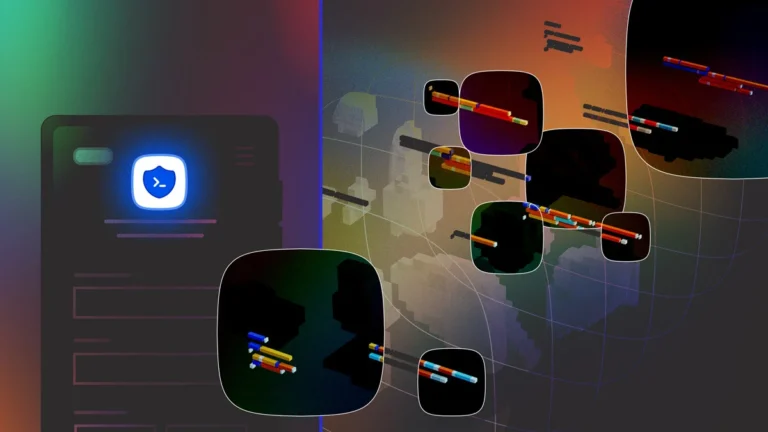Choosing between Field Service Management (FSM) and Customer Relationship Management (CRM) solutions can feel confusing. Both serve essential functions for businesses but in different ways. Deciding which one aligns with your needs requires a clear focus on what each can offer. The right choice will significantly impact how smoothly your business operates.
In this article, we will explore both options without relying on fluff or filler. You’ll get a clear comparison that highlights what you need to know to make the best decision.
Key Points:
- FSM focuses on coordinating tasks, staff, and customer interactions.
- CRM organizes customer data, sales, and support.
- Businesses with on-the-ground teams benefit more from FSM.
- CRM suits companies focused on sales and marketing.
- Assess your workflow to decide which solution fits best.
What Is Field Service Management?

FSM coordinates work that happens outside the office. The primary purpose is to manage operations, including scheduling tasks, dispatching staff, and keeping customers informed. It aims to improve communication between teams and clients, making sure tasks get completed efficiently.
Efficiency comes from simplicity. Instead of using multiple tools to handle different tasks, a single solution simplifies the process. For example, a field service app allows your workers to stay on track by handling scheduling, payment collection, and customer updates. Your staff no longer has to deal with scattered tools, which keeps everything more organized.
FSM shines when tasks need coordination outside a central office. Field technicians, home repair services, or maintenance teams need constant updates to ensure nothing falls through the cracks. The solution keeps everyone aligned without confusion.
What Does CRM Software Do?
CRM focuses on customer data. It allows businesses to store information about customers, track sales, and manage communications. The goal is to build stronger relationships with clients by improving how you engage with them. CRM solutions are great for managing sales funnels and customer support.
Many businesses depend on CRM to track every touchpoint a customer has. It stores contact info, tracks past interactions, and manages potential sales opportunities. If your business has a large number of customers, a CRM ensures nothing gets lost.
CRM software fits businesses that deal heavily with customer service and sales pipelines. It helps identify trends, track customer habits, and convert leads into sales. This makes CRM a vital tool for growth in industries focused on customer interactions.
Comparing FSM and CRM

Now that you know what each tool does, let’s break down the key differences. Understanding these contrasts will help you see which tool will suit your specific business needs.
Task Management vs. Customer Data
FSM keeps track of work assignments, technician dispatches, and customer service appointments. CRM, on the other hand, focuses on data. It collects and organizes customer info, managing your interactions with each client. FSM is better for hands-on tasks, while CRM is ideal for managing relationships.
Workflows vs. Pipelines
FSM handles the logistics of who goes where, at what time, and how they perform the task. CRM manages sales pipelines and customer relationships. It’s about tracking leads and converting them into loyal customers.
Industry Fit
FSM fits industries like repair services, maintenance, or any other service that involves teams working in different locations. CRM fits businesses like sales teams or marketing departments, where managing a high volume of customer interactions matters most. Each tool serves its own industry well.
What Type of Business Should Use FSM?

FSM is tailored for businesses that operate on-the-ground services. Fieldwork needs constant monitoring. Whether you manage a home repair service, HVAC, plumbing, or any similar operation, you need an efficient system to dispatch staff and track customer appointments.
FSM provides real-time updates. It helps ensure your field workers arrive on time, handle tasks effectively, and provide updates to your customers along the way. By going paperless, your business can streamline operations and cut down on administrative hassles.
FSM software also ensures your teams know their responsibilities without needing constant oversight. You can manage schedules from a central dashboard, track performance, and assign tasks without being overwhelmed.
What Type of Business Should Use CRM?
CRM software works well for companies that have a large customer base or handle many customer interactions. A business that tracks sales leads, manages customer support, or engages in email marketing will benefit from a CRM.
It helps manage communication with customers and ensures you follow up on every interaction. The more you know about your customers, the better you can serve them. CRM systems help gather that data in a way that makes it easy to track and act upon.
CRM software fits well in industries like retail, financial services, and hospitality. Any business that relies on customer satisfaction and long-term relationships will gain value from a CRM.
Choosing the Right Solution
Your choice between FSM and CRM will depend on the type of business you run. If you need to manage operations that require staff to be on the ground, FSM is likely your best bet. If you need to manage a sales funnel or track customer behavior, a CRM will provide more value.
You should look at the nature of your tasks. If your work requires scheduling, assigning jobs, and dispatching staff, FSM will fit your business model. On the other hand, if you manage a sales team, track leads, and need a better way to engage with your customers, CRM will suit your needs.
Each tool has strengths, and your decision should be based on what will help your operations run more efficiently.
FSM vs. CRM – Final Thoughts

Choosing between FSM and CRM depends on the structure of your business. If you manage tasks that happen outside the office, FSM will provide better results. If your business focuses on customer relationships and sales, CRM will give you the tools to manage customer interactions.
Both solutions provide significant benefits. Your decision should align with your business model and workflow.
Focus on what drives your day-to-day operations. By knowing what each tool does best, you can select the right one for your needs.
Related Posts:
- 20 Best Gaming Headset Under 50$ 2024 - for PC, PS4,…
- 15 Best Shoes for Walking on Concrete 2024 - Soft &…
- Top 10 Best Modem For Gaming 2024 - For Optimum Gaming Speed
- 10 Best External Hard Drive 2024 - Compatible With…
- Top 10 Best Inflatable Kayak 2024 - for Exploring…
- Top 10 Best Leather Backpack For Men and Women 2024…







